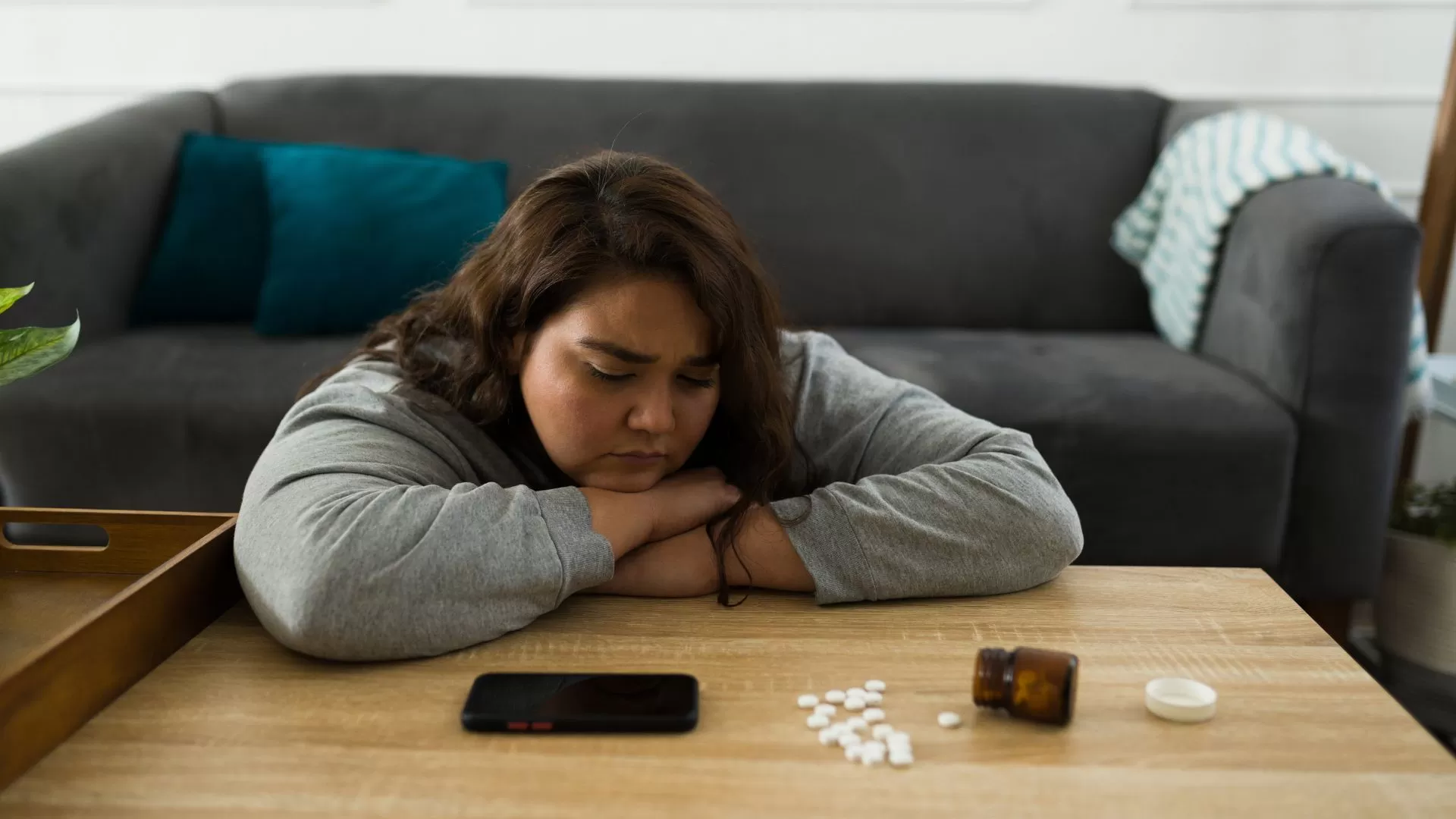Women's Mental Health Counselling Therapy for Substance Use Disorders
We recognize that women’s mental health counseling for substance use disorders offers essential, compassionate support tailored to unique challenges women face. This approach acknowledges the impact of trauma, societal pressures, and caregiving roles on recovery. Through therapies like Cognitive Behavioral Therapy and trauma-informed care, we can help women confront their struggles and foster emotional growth. Our personalized treatment plans empower individuals by focusing on emotional regulation and coping strategies. With supportive environments like women’s support groups and family counseling, we believe recovery is not a journey taken alone. Those interested can discover further insights and strategies to enhance their healing journey.

About Women’s Mental Health Counselling Therapy
In understanding Women’s Mental Health Counselling therapy, we recognize the unique challenges women face, especially when steering through the complexities of substance use disorders. This therapy is essential for providing the mental health support needed to navigate addiction recovery. By focusing on women’s emotional health, we can tailor our approaches to address specific issues that may arise from societal pressures, trauma, or dual diagnosis situations.
Through individual counseling, we engage in a compassionate dialogue that fosters trust and openness. This safe space allows women to explore their feelings and experiences while developing coping strategies for substance use treatment. We emphasize the importance of rehabilitation programs that are designed with women in mind, recognizing their distinct needs.
Moreover, relapse prevention is a critical component of this process. We equip women with tools to identify triggers and manage cravings, ensuring they feel empowered throughout their journey. Overall, women’s mental health counselling therapy is not just about treating addiction; it’s about enhancing well-being, fostering resilience, and nurturing a supportive community that encourages growth and healing. Together, we can pave the way for healthier futures and fulfilling lives.
Understanding Substance Use Disorders in Women’s Mental Health
Understanding substance use disorders in women’s mental health requires us to acknowledge the intricate interplay of biological, psychological, and social factors that uniquely affect women on their journey to recovery. As we explore these complexities, we see that addiction isn’t just about substance dependence; it often intertwines with mental health issues and co-occurring disorders.
Women may face unique stressors, such as trauma, societal pressures, and caregiving responsibilities, which can exacerbate their struggles with substance use disorders. This is where gender-specific therapy becomes essential. By focusing on women’s mental health, we can tailor mental health counseling approaches to address their specific needs, fostering a supportive environment that promotes emotional well-being.
Holistic treatment is another important aspect of recovery. It emphasizes the significance of integrating physical, mental, and emotional health, allowing us to heal in a thorough way. Working closely with addiction specialists, we can develop effective strategies that empower women to reclaim their lives. By understanding these factors and supporting each other, we can create a path toward lasting recovery and resilience, ultimately improving the lives of women affected by addiction.

Comprehensive Assessment and Personalized Diagnosis for Substance Use Disorders
Recognizing the unique challenges women face in their recovery journey, a detailed assessment and personalized diagnosis for substance use disorders is essential to provide the tailored support they need. We acknowledge that women often experience substance misuse differently, influenced by factors like trauma, social pressures, and mental health issues. That’s why a thorough assessment is vital; it helps us identify the specific challenges each woman faces.
In our approach, we prioritize mental health counseling as a key component of treatment. By integrating emotional support and understanding, we can create a safe space where women feel heard and validated. This personalized diagnosis allows us to design effective rehabilitation plans, whether in rehabilitation centers or through outpatient treatment.
Our goal is to empower women on their path to addiction recovery, recognizing that each journey is unique. By focusing on individual needs and circumstances, we can foster resilience and promote lasting change. Through dedicated women’s mental health support, we aim to break the stigma surrounding substance use disorders and provide the compassionate care every woman deserves. Together, we can navigate the complexities of recovery and build a brighter future.
Cognitive Behavioral Therapy (CBT) for Substance Use and Recovery
Cognitive Behavioral Therapy (CBT) offers a powerful tool for women traversing the complexities of substance use and recovery, helping them reshape thought patterns and develop healthier coping strategies. In our journey through recovery programs, we’ve found that CBT focuses on understanding how our thoughts influence our behaviors, particularly in facing substance use disorders.
By learning to identify and challenge negative thought patterns, we can better manage relapse triggers and foster emotional regulation. This approach not only aids in addiction counseling but also aligns with the principles of holistic therapy, promoting overall well-being.
As we engage in psychotherapy for women, CBT equips us with essential stress management techniques, allowing us to navigate daily challenges with resilience. We’ve realized that addressing our mental health care needs is crucial for sustaining recovery.
Together, we can embrace CBT as a transformative process, empowering ourselves to break free from the cycle of addiction. Through this supportive framework, we can cultivate a healthier mindset, leading us toward a fulfilling life beyond substance use.
Dual Diagnosis: Addressing Co-Occurring Disorders (Anxiety, Depression, PTSD)
As we explore the intricate relationship between substance use disorders and mental health, it becomes clear that many of us may be grappling with co-occurring disorders like anxiety, depression, or PTSD, which can complicate our recovery journey. Recognizing these dual diagnoses is vital in women’s therapy, as it allows us to address the full spectrum of our experiences with substance abuse.
Anxiety disorders can amplify feelings of hopelessness, making it harder for us to engage in effective depression treatment. Similarly, PTSD can surface unresolved trauma, leading us to seek temporary relief through substances. Here, mental health counseling that focuses on trauma-informed care becomes essential. It helps us feel safe and understood, allowing us to navigate our emotional recovery together.

Trauma-Informed Therapy for Women with Substance Use Disorders
Trauma-informed therapy offers a compassionate framework that helps us understand and heal from the deep-rooted experiences that often fuel substance use disorders in women. By recognizing the impact of emotional trauma on our mental health, we can begin to navigate the complexities of trauma recovery. This approach is especially crucial in gender-focused therapy, where we can openly discuss our unique experiences and challenges.
Through psychotherapy, we learn to acknowledge our past and its role in our substance abuse, paving the way for emotional resilience. We also explore community resources that support holistic wellness and stress reduction, creating a safe space to heal. This journey isn’t just about overcoming addiction; it’s about building a life filled with purpose and connection.
As we engage with trauma-informed practices, we start to reclaim our narratives. We cultivate self-compassion and develop healthier coping strategies that empower us in our recovery. Together, we share insights, fostering an environment where we uplift one another, knowing that our experiences are valid and that healing is possible. Through this collective effort, we can transform our lives and emerge stronger than ever.
Developing Emotional Regulation and Coping Skills in Recovery
Developing emotional regulation and coping skills is essential for us as we traverse the challenging waters of recovery, empowering us to respond to life’s stressors with resilience and grace. By focusing on our emotional health, we can confront the underlying issues often tied to substance abuse. Recovery coaching plays a crucial role in this process, guiding us in identifying effective coping strategies that foster self-awareness and emotional regulation.
Through trauma therapy, we can address past experiences that contribute to anxiety and unhealthy coping mechanisms. By integrating mindfulness practices, we learn to stay present, reducing overwhelming feelings and promoting a sense of calm. These tools not only aid in anxiety management but also strengthen our ability to handle stress without reverting to substance use.
Women’s counseling services provide a supportive space for us to share our experiences and develop these essential skills together. As we build our resilience, we become more adept at traversing life’s challenges, empowering ourselves to maintain long-term recovery. By prioritizing emotional regulation and coping skills, we create a foundation for a healthier, more balanced life, free from the grips of addiction.
Mindfulness and Meditation Practices to Support Recovery and Relapse Prevention
Mindfulness and meditation practices offer us powerful tools to navigate the complexities of recovery and bolster our resilience against relapse. By incorporating mindfulness meditation into our daily routines, we can create a space for anxiety relief and stress relief, essential for managing the triggers of substance abuse. These practices encourage us to stay present, fostering a deeper connection to our thoughts and emotions.
Engaging in mindfulness not only aids in relapse prevention but also promotes personal growth and self-care. As we learn to observe our feelings without judgment, we empower ourselves to make healthier choices. This intentional practice can be particularly beneficial during moments of grief or heightened emotions, allowing us to process our experiences with compassion.
Moreover, prioritizing mental wellness through mindfulness and meditation helps us cultivate a supportive environment for healing. We can develop resilience and learn to navigate life’s challenges with grace. By committing to these practices, we strengthen our capacity for empowerment, transforming our relationship with ourselves and our recovery journey. Together, we can embrace these tools to support lasting change and a fulfilling life beyond substance use.

Role of Family and Relationship Counseling in Substance Use Disorder Treatment
While mindfulness and meditation practices nurture our individual journeys of recovery, the support of family and relationship counseling can greatly enhance our healing process by fostering understanding and communication among loved ones. Engaging in family therapy allows us to address the impacts of substance use disorders on our relationships, helping family members understand our struggles and encouraging them to become active participants in our recovery planning.
Through relationship counseling, we can work together to identify unhealthy patterns, explore coping mechanisms, and promote trauma healing. This collaborative approach not only strengthens our bonds but also reinforces our psychological well-being. Support groups and group therapy provide additional spaces for us to share experiences, learn from others, and gain valuable mental health resources.
Women’s Support Groups for Substance Use: Building Community and Resilience
Joining women’s support groups for substance use can be a transformative experience, helping us build community and resilience as we navigate our recovery journeys together. In these supportive environments, we share our stories, struggles, and successes, fostering a sense of belonging that’s essential for our mental health.
These groups often incorporate mental health therapy and life skills training, equipping us with tools to confront addiction head-on. Through substance-free activities, we create joyful memories and reinforce our commitment to recovery. The bonds we form in these circles become a strong social support network, reminding us that we’re not alone in our fight against substance use.
Moreover, the shared experiences in women’s support groups empower us to face challenges with renewed strength. We learn from one another, gaining insights that help us develop resilience and maintain our progress in recovery programs. Together, we celebrate victories, big and small, and provide encouragement during tough times. In this nurturing community, we cultivate hope and healing, proving that together, we can overcome the hurdles of addiction and embrace a brighter, substance-free future.
Holistic and Lifestyle-Focused Approaches to Substance Use Recovery
Holistic approaches to substance use recovery allow us to address not just the addiction itself, but also the emotional, physical, and spiritual aspects of our lives that contribute to our overall well-being. By focusing on women’s issues, we can tailor our strategies to meet unique needs during life changes, such as motherhood or career shifts.
Incorporating counseling for women into our recovery process enhances our understanding of how substance abuse affects us differently. This personalized approach, combined with behavioral therapy, empowers us to explore the underlying causes of our addiction. As we engage in mental health advocacy, we create a supportive environment where we can discuss our challenges openly.
Moreover, nurturing maternal mental health is essential. A holistic recovery program may include wellness practices like yoga, mindfulness, and nutrition, which foster healing and resilience. These practices help us reconnect with ourselves and others, promoting a healthier lifestyle.
Ultimately, through a combination of drug rehabilitation and holistic approaches, we can cultivate a sense of purpose and empowerment in our recovery journey, ensuring that we address the whole person—not just the addiction. Together, we can foster a sustainable path toward healing and wellness.
Managing Relapse Triggers and Building Long-Term Resilience
Recognizing and managing relapse triggers is essential for us on our journey to long-term resilience and recovery. These triggers can stem from various sources, including anxiety, depression, or unresolved trauma, and they often lead us back to substance abuse. By identifying these triggers, we can develop effective coping strategies that empower us to handle challenging situations.
Mindfulness-based therapy has proven particularly helpful in this process. It allows us to stay present and aware, reducing the overwhelming feelings that often accompany anxiety and depression. Additionally, participating in trauma recovery programs can help us address underlying issues, fostering our self-worth and overall mental health.
Engaging in gender-focused therapy can also provide us with a supportive environment to explore our unique experiences and challenges. Together, we can share insights and strategies that resonate with our specific needs. By focusing on these approaches, we can build a solid foundation for long-term resilience, making it easier to navigate the complexities of life without turning to substances as a coping mechanism. Ultimately, we’re not alone in this journey, and by supporting one another, we can thrive in our recovery.
Self-Esteem and Personal Growth in Substance Use Recovery
Fostering self-esteem is an essential part of our recovery journey, as it empowers us to embrace personal growth and build a healthier relationship with ourselves. When we confront substance use disorders, we often struggle with feelings of inadequacy. Through addiction counseling, we can explore these feelings and begin to nurture our self-worth, leading to significant mood stabilization.
As we work on our self-esteem, we also gain the tools to address relationship issues that may have arisen from our past. This process is fundamental for women’s empowerment; when we value ourselves, we create space for healthier connections and boundaries. We learn to appreciate our body image, recognizing that our worth isn’t defined by societal standards but by our unique experiences and resilience.
Personal growth doesn’t happen overnight, but with each small step, we cultivate a stronger sense of self. By prioritizing our mental health, we not only support our recovery but also inspire others on similar journeys. Together, we can celebrate our progress, knowing that our self-esteem is a significant foundation for a fulfilling life beyond addiction.
Substance Use Therapy During Perinatal and Maternal Phases
Steering through substance use therapy during the perinatal and maternal phases can feel overwhelming, but it’s essential for both our well-being and that of our children. During this sensitive time, many of us face challenges like postpartum depression and anxiety, which can exacerbate substance abuse issues. It’s imperative to address drug dependence and alcohol use disorder through tailored interventions that prioritize maternal health.
Engaging in gender-focused therapy can provide us with unique insights into our experiences, helping us navigate opioid addiction and other substance use disorders. We may need to reflect on detoxification options, ensuring that our physical health is stabilized while we confront emotional struggles.
Perinatal mental health is fundamental, as it directly impacts our ability to bond with our children. By seeking anxiety counseling and support, we can better manage our feelings and create a nurturing environment for our families. Together, we can share strategies and support one another through these challenges, recognizing that recovery is not just about abstaining from substances—it’s about nurturing our overall well-being and fostering healthy relationships with our children.
Support Through Outpatient, Inpatient, and Sober Living Programs
Finding the right support through outpatient, inpatient, and sober living programs can greatly enhance our recovery journey, especially as we continue to address the complexities of substance use and mental health during essential phases of our lives. Many of us face challenges like substance abuse, alcoholism, or opioid use disorder, and knowing we’re not alone in this struggle can be incredibly comforting.
Outpatient programs offer flexibility, allowing us to maintain our daily routines while receiving counseling and support. Inpatient or residential treatment, on the other hand, provides a structured environment where we can focus solely on recovery, especially during detox when withdrawal symptoms can be intense.
Sober living programs also play a significant role, offering a supportive community as we shift back into everyday life. They reinforce the lessons learned in treatment and often incorporate 12-step programs, which can be invaluable for ongoing support. Additionally, medication-assisted treatment may be available to help ease the recovery process.
Contact Us for Expert Substance Use Disorder Counseling and Support for Women
Reaching out for expert counseling and support can be an essential step in our journey to overcome substance use disorders and reclaim our mental health. As women, we often face unique challenges, including identity issues and post-traumatic stress, which can complicate our experiences with substance abuse. Together, we can explore paths to healing that focus on women’s empowerment and self-help strategies.
Our approach emphasizes harm reduction, providing tailored support for those dealing with alcohol rehab, marijuana addiction, or other substance-related challenges. We recognize that seeking help is not a sign of weakness; it’s a courageous step toward a drug-free lifestyle. Through our specialized counseling, we aim to create a safe environment where we can openly discuss our struggles with depression and find effective coping strategies. Contact us today!

Frequently Asked Questions
What Are the Signs of Substance Use Disorders in Women?
When we consider the signs of substance use disorders in women, we often notice changes in behavior and mood. They might withdraw from loved ones, lose interest in activities they once enjoyed, or experience mood swings. Physical signs like weight changes, poor hygiene, or unusual sleep patterns can also emerge. If we see these signs, it’s important to approach the situation with compassion and support, encouraging open conversations about feelings and struggles.
How Can I Find a Qualified Therapist for Women’s Substance Use Issues?
Finding a qualified therapist can feel overwhelming, but we can take it step by step. First, we should consider asking our healthcare provider for recommendations. Online directories and local support groups can also guide us to professionals who specialize in our needs. It’s important to check their credentials and read reviews. Don’t hesitate to reach out for consultations; it’s about finding someone we feel comfortable and safe with. We deserve that support.
What Is the Role of Medication in Treating Women’s Substance Use Disorders?
When we think about the role of medication in treating substance use disorders, we recognize it can be a crucial part of recovery for many. Medications can help manage withdrawal symptoms, reduce cravings, and stabilize mood, making it easier for us to engage in therapy and other support systems. It’s important, though, that we work closely with healthcare providers to find the right balance and guarantee a holistic approach to our healing journey.
How Does Culture or Ethnicity Impact Women’s Substance Use Recovery?
When we think about how culture or ethnicity shapes women’s recovery from substance use, it’s clear that these factors can heavily influence our experiences and support systems. Different cultural backgrounds often bring unique traditions, beliefs, and community dynamics into play. These elements can either foster resilience or create barriers during recovery. By embracing our diverse identities, we can develop more tailored approaches that honor each woman’s journey, ultimately leading to more effective recovery outcomes.
Are There Specific Resources for Mothers Dealing With Substance Use Disorders?
When it comes to mothers facing substance use disorders, we recognize how challenging this journey can be. Thankfully, there are specific resources available to support them. Local support groups, online forums, and helplines provide a sense of community and understanding. Many organizations offer parenting programs that focus on recovery while nurturing their children’s well-being. We believe that with the right support, mothers can find strength and hope on their path to healing.

